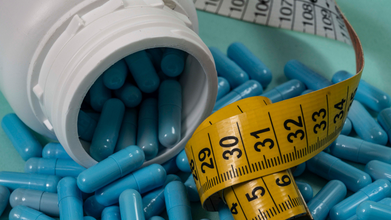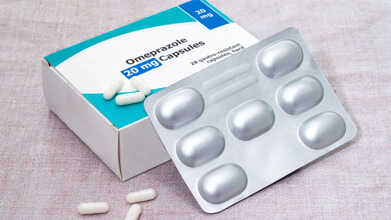- Health Conditions A-Z
- Health & Wellness
- Nutrition
- Fitness
- Health News
- Ayurveda
- Videos
- Medicine A-Z
- Parenting
Health vs. Hustle: Is Modern Productivity Destroying Our Bodies?

I used to wear my exhaustion as a badge of honor. Early mornings, late nights, meeting all deadlines—I thought hustle was the hack to success. But one night, sitting in my apartment, I caught myself that I hadn't eaten a thing all day. My hands shook, my head pounded, and I couldn't recall when I last felt rested.
Studies affirm what my body was screaming. According to the World Health Organization, burnout is now recognized as an occupational phenomenon caused by chronic workplace stress. Overwork and lack of sleep have been linked to increased anxiety, depression, and weakened immune function through a 2021 study in Frontiers in Psychology.
Now I'm gradually but steadily unlearning hustle culture's toxic habits, staying mindful, and making 7 hours of nighttime sleep a priority. Gradually, I am learning that resting is not being lazy—it's recovery. I still work hard, but now I value balance more than burnout.
Do you too feel like you're always on the grind? Do you feel bad taking a break or even having a full night's sleep? Hello, the age of hustle culture—is where productivity rules and rest is a luxury. But beneath the glitzy surface of continuous striving, an escalating public health crisis is being quietly fostered. As doing without stopping emerges as the cultural standard, physicians are sounding warning alarms: bodies and brains are paying the ultimate price. Is contemporary productivity slowly undermining our wellbeing?
Modern Badge of Honor or a Ticking Time Bomb
In the high-achieving world of today, multitasking, late-night work sessions, and 24/7 availability are glorified. Dr. P. Venkata Krishnan, Senior Consultant in Internal Medicine, says that although this relentless pace of work might temporarily increase productivity, it also ravages our physical and mental health. "Sleep, which is crucial for body repair and brain function, is usually compromised. People are constantly fatigued, stressed, and emotionally drained—and by the time they realize it, it's already impacting their health," he cautions.
From bad diets and hours of screen time to sacrificing basic physical exercise, hustle culture makes unhealthy behaviors the norm. Long-term dependency on this stress-based lifestyle can result in obesity, high blood pressure, heart disease, and even immune system collapse.
Fallacy of "Success Equals Happiness"
Early socialization promotes that endless toil is the key to achievement—and thus happiness. But is this actually true?
"Rest and laziness is a myth," declares Dr. Krishnan. "Lots of people pursue success just to get burnt out, disconnected emotionally, and still feel unfulfilled." Social media is not helpful, glorifying entrepreneurs and influencers who "never stop grinding" and reinforcing the notion that productivity is the single route to purpose.
This erroneous reasoning disregards some of the most important things in life—mental well-being, relationships, and personal development. Genuine happiness, more and more people are finding out, is not generated by ceaseless productivity but by equilibrium: family meals, peaceful strolls, artful pastimes, and restorative relaxation.
Clinical Dietitian Reena Poptani also shares this view, highlighting the psychological cost of relentless ambition. "Mental health is too often the most neglected pillar of well-being. Chronic stress isn't only a mental load—it's a physical one as well," she adds. People with prolonged exposure to stress have greater risks of anxiety, depression, gastrointestinal disorders, and mood disorders.
Reena points out the way that disrupted sleep and erratic eating patterns have a chain reaction: "Sleep deprivation raises cortisol, the stress hormone, which derails the Gut-Brain Axis and compromises emotional control. Throw screen time and irregular meals into the mix, and you're looking at a recipe for metabolic and cognitive decline."
Why Holistic Health is Making a Comeback?
As the cases of burnout, hormonal disorders, and lifestyle diseases on the rise, the world consciousness is changing. More individuals are adopting holistic health, not as a fad, but as a requirement. Holistic health is concerned with the five most important dimensions of well-being, namely physical, emotional, mental, social, and spiritual.
"This new emphasis on well-being isn't about abandoning ambition—it's about making it workable," Reena explains. Habits like yoga, meditation, journaling, mindful eating, and walking in nature are catching on because they are effective. They ground us, lower inflammation, modulate sleep, and boost mood.
And owing to technology—smartwatches, meditation apps, sleep monitors—it's never been more convenient to make room for these practices in busy lives.
How to Reclaim Health in a Hustle-Obsessed World?
Rebalancing the scales isn't sacrificing your aspirations—it's achieving them in a way that nurtures long-term vibrancy. Dr. Krishnan believes in purposeful work boundaries, purposeful breaks, and mental reset techniques such as mindfulness. "Health isn't a detour from success—it's the highway to it," he believes.
Dietician suggests easy tips to maintain stress at bay:
- Begin the day with 10 minutes of meditation
- Engage in deep breathing during anxious work hours
- Disconnect from screens before bed
- Eat meals without distraction
- Maintain a gratitude journal
- Engage in regular physical activity, even a simple walk
These habits not only maintain physical and mental well-being but also realign our measure of success.
We're not asking you to give up your dreams—by no means. What we are urging is a deliberate shift: from burnout to equilibrium, from hustle to synergy. The world is beginning to awaken to the price of endless productivity, and the solution isn't to do less but to do better. Wellness isn't the antithesis of achievement—it's the basis for it.
As we redefine what it means to thrive, perhaps the real power lies in how well we live, not just how much we do.
Dr P Venkata Krishnan is a Senior Consultant, Internal Medicine at Artemis Hospitals in India
Reena Poptani is a Clinical Dietitian and Founder at Reenurture in India
The Hidden Sign You Should Look Out For To Prevent Heart Attacks, Cardiologist Reveals

Credits: Canva
Been feeling a certain tightness in your chest or out of breath when you walk up the stairs?
Dr Sharonne Hayes, a cardiologist at the Mayo Clinic US has revealed that low exercise tolerance or not being able to do physical activity for long or as intensely as in the past may be a sign of a future heart attack due to coronary heart disease.
The expert told TODAY.com, "I find as a physician, one of the most helpful questions when somebody comes in and says they’re breathless, I say, think back: Could you do that earlier this summer or last summer, and now you can’t?
"A substantial minority of patients will have some symptoms that, had they paid attention to them or sought an outpatient evaluation, they might have had a different outcome."
She explained that sudden tiredness, breathlessness and having to take a break while performing basic physical activities such as going on a walk may indicate narrowed arteries in the body which can suggest heart blockage. Over time, this can develop into coronary artery disease and pave the way for a heart attack.
Coronary Artery Disease: The Silent Killer
Despite being as a common heart disease, coronary artery disease (CAD) develops over years and has no clear signs and symptoms apart from a heart attack. The illness begins due to a buildup of fats, cholesterol and other substances known as plaque in and on the artery walls.
Over time, this can cause narrowing or blockage of the coronary arteries and block the supply of oxygen-rich blood to heart which can lead chest pain (angina), shortness of breath and ultimately, heart attacks.
Typically, those above the age of 45, having a biological family member with heart disease, lack of sleep, smoking, consuming saturated fats along with other autoimmune diseases such as lupus and rheumatoid arthritis can increase the risk of developing CAD.
Treatment options may include medicines and surgery. Eating a nutritious diet, getting regular exercise and not smoking can help also prevent CAD and the conditions that can cause it.
Nearly one in 10 Indian adults suffer from CAD and about two million people die from the disease annually. Apart from this, about 18 to 20 million American adults aged 20 and older are also affected about the disease.
How Much You Should Exercise To Prevent CAD?
The American Health Association recommends performing at least 150 minutes per week of moderate-intensity aerobic activity such as brisk walking, dancing and gardening or 75 minutes per week of vigorous aerobic activity, such as hiking, running, cycling or and playing tennis or a combination of both, preferably spread throughout the week to maintain heart health.Moreover, regular exercise can also reduce the risk of Type 2 diabetes, high blood pressure, dementia and Alzheimer’s, several types of cancer. It can also help improve sleep, cognition, including memory, attention and processing speed.
Dr Hayes recommends opting for a cardiac evaluation such as an electrocardiogram, or EKG; stress test; a cardiac MRI or CT scan to generate images of your heart if you notice changes in your ability to exercise or cannot perform consistent levels of exercise.
Wegovy Pills Now Available At Your Pharmacies, Here's What To Know About Its Usage

Credits: iStock
Wegovy pill is launched on Monday and the starting dose is now available at pharmacies around the US. Higher doses will arrive by the end of the week. The Food and Drug Administration approved the pill for obesity on December 22. The pill has also been approved to reduce the risk of heart attack and stroke among patients who are obese or overweight.
How Effective Is The Wegovy Pill?
After injection by Novo Nordisk, of the same name, Wegovy, which has been on the market since 2021, its popularity grew so much that it was in short supply until February 2025. The pill version has now come out, which many experts believe will expand its accessibility. As the monthly supply of pill is expected to be cheaper than the monthly supply of the weight loss injection.
A study published in the New England Journal of Medicine show that a 25 milligram Wegovy pill led to 13.6% reduction in weight on average over 64 weeks. When compared to placebo, the result was only 2.2% of weight loss. Novo Nordisk says that those who stayed on the treatment and reduced their calorie intake, it would lead to a loss of 16.6% of their weight.
How To Use The Weight Loss Pill?
The first step lies in buying the correct and safe weight loss pill. Make sure the weight loss pills are clinically proven option for people to use to reduce their weight.
Take the pill with a glass of water. Make sure to always have the pill prescribed and follow the instructions that you GP has told. Store the pill in a cold place, however avoid freezing the medicine. Keep the medicine out of a child's reach. In some weight loss pills, if you miss your dosage, you can take it within 1 hour, however, clarify these doubts from your GP. A pill can usually be consumed within an hour of a fat-containing meal up to three times a day., however, the Wegovy pill must be taken on an empty stomach. Patients are advised not to eat, drink, or take other medicines for at least 30 minutes afterward. Thus, one must follow what is being prescribed for the best result, as the administering of the pill could vary based on the medication.
Most importantly, a healthy balanced diet, and a regular workout routine is also important will the person is on the pill.
Read: Wegovy Starter Dose Now Available As Daily Pill, Replacing Weekly Injections
What Are The Side Effects Of Wegovy Pill?
Digestive problems such as nausea and vomiting remain the most common side effects of GLP-1 drugs. These issues were also reported in studies of the pill versions. Around 7 percent of participants taking the Wegovy pill stopped treatment because of side effects, compared with 6 percent in the placebo group. In orforglipron’s trial, up to 10 percent of patients discontinued treatment, compared with 3 percent on placebo.
One key difference lies in how the medications are used. The Wegovy pill must be taken on an empty stomach with a small amount of water. Patients are advised not to eat, drink, or take other medicines for at least 30 minutes afterward. Doctors say this requirement has limited the use of Rybelsus, the pill form of semaglutide approved for diabetes, compared with Ozempic.
Eli Lilly highlights that orforglipron was taken once daily in trials without restrictions on food or water, which may make it easier for patients to use consistently.
NHS Warns Against Using Omeprazole For Longer Than Two Weeks; Here's Why

Credits: Canva
Anyone who has purchased omeprazole will have noticed a clear NHS warning advising against using the drug for longer than two weeks due to its possible impact on the body. Omeprazole belongs to a group of medicines known as proton pump inhibitors, or PPIs, and is commonly used across the UK to treat conditions such as heartburn, stomach ulcers, and gastro-oesophageal reflux disease.
How Omeprazole Works and How It Is Prescribed?
Omeprazole works by reducing the amount of acid produced in the stomach. It comes in several forms, including capsules, tablets, and liquid preparations. While some versions can be bought directly from pharmacies or shops, the medicine is most often prescribed by a GP.
Although it is effective at easing symptoms linked to excess stomach acid, health experts caution against long-term use. Taking omeprazole for extended periods has been linked to a higher chance of developing certain side effects, which is why routine, prolonged use is usually discouraged.
What NHS Guidance Says About Duration of Use
The NHS clearly advises people who buy omeprazole without a prescription not to take it for more than two weeks. Its guidance states: “Do not take omeprazole for longer than 2 weeks if you bought it without a prescription. See a GP if your symptoms get worse or do not get better.”
In cases where symptoms are more severe or ongoing, a GP may recommend continuing the medication for longer under medical supervision. However, anyone worried about the risks of taking omeprazole beyond a fortnight is advised to discuss this with their doctor or another qualified healthcare professional.
Possible Side Effects of Omeprazole
Like all medicines, omeprazole can cause side effects, although not everyone will experience them. According to NHS information, some side effects are more likely to appear if the drug is taken continuously for 12 months or longer.
Common Side Effects
Milder and more common side effects associated with omeprazole include:
- Constipation
- Headaches
- Diarrhoea
- Feeling sick
- Excess wind
- Stomach pain
- Vomiting
More Serious Risks to Be Aware Of
Less common but more serious side effects linked to omeprazole use include weakened bones, which may increase the risk of fractures. In rare cases, people may experience anaphylaxis, a severe allergic reaction that can cause swelling of the tongue or throat, an itchy raised rash, and difficulty breathing.
Other reported risks include a form of lupus that can lead to joint pain and skin rashes, as well as low vitamin B12 levels, which may result in tiredness, muscle twitching, and dizziness.
When to Seek Medical Help?
The NHS also advises calling 111 if you are taking omeprazole and believe you may be experiencing serious side effects. This list does not cover every possible reaction, and individual responses to the drug can vary.
For full guidance, patients are encouraged to read the leaflet included with their medication. More detailed information on how to take omeprazole safely, along with a complete breakdown of potential side effects, is available on the NHS website.
© 2024 Bennett, Coleman & Company Limited

